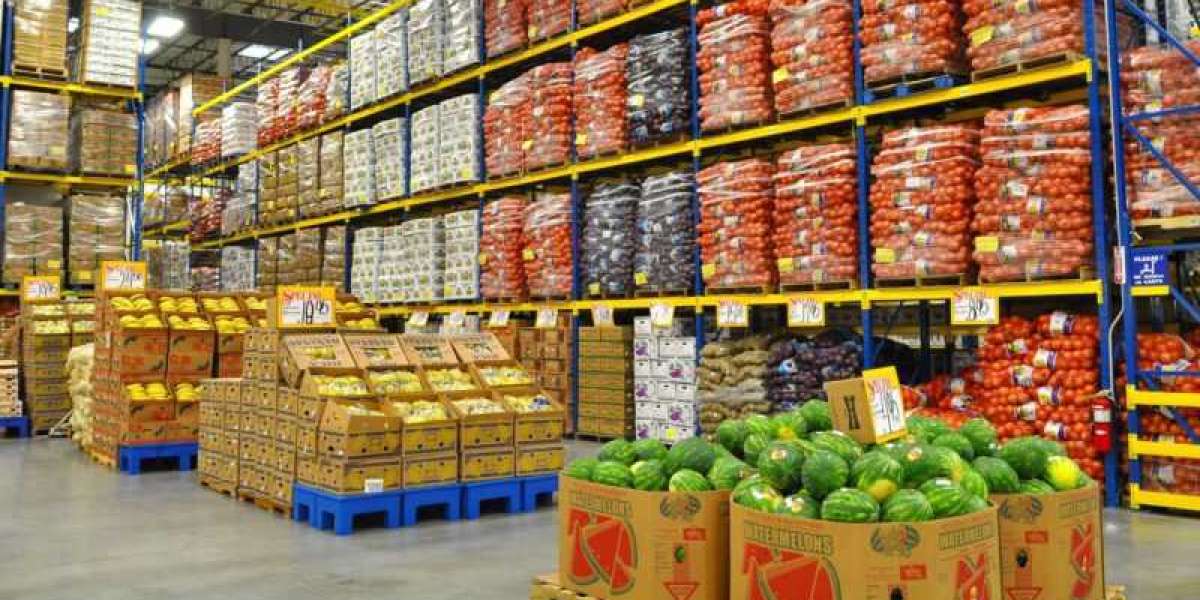Discover how food wholesalers connect local farms to large-scale buyers through smart logistics, quality assurance, and B2B marketplace innovation.
Introduction: Why the Food Supply Chain Needs Wholesalers
Ever wonder how that box of cherry tomatoes gets from a farm in Southern Spain to a supermarket shelf in London? It’s not magic—it’s food wholesalers. These middlemen (and middlewomen!) are the unsung heroes of the food supply chain. They take care of the hard stuff: collecting goods from local producers, storing them safely, and delivering them in bulk to buyers like grocers, restaurants, and retailers across regions.
Without food wholesalers, the chain would be full of weak links. With them? Everything connects smoothly—farmers focus on farming, buyers get variety and reliability, and everyone wins.
What Exactly Does a Food Wholesaler Do?
Let’s break it down. A food wholesaler buys products in bulk—often straight from farms or food manufacturers—and then sells them in larger quantities to other businesses. Think of them as the bridge that links small producers with big buyers who need consistent, scalable supply.
They handle the heavy lifting, like:
- Aggregating goods from multiple farms
- Storing perishable items in controlled environments
- Managing transport logistics
- Navigating compliance and traceability
- Offering volume discounts
Sounds like a lot? That’s because it is. But for wholesalers, it’s business as usual.
From Farm Gate to Freight Truck: How Sourcing Starts
Sourcing begins at the farm level. Food wholesalers build relationships with local growers, fisheries, or processing units. Some even specialize by category—like dairy, produce, or meat.
What Wholesalers Look for in Local Farms
- Consistency – Can they supply year-round or only seasonally?
- Quality standards – Are they certified (e.g., Global GAP, organic)?
- Scalability – Can they handle growing volume demands?
- Traceability – Are their products easily trackable from origin to buyer?
By selecting the right partners, wholesalers ensure that buyers further down the line get quality and reliability with every delivery.
Storage, Safety, and Timing: Where the Real Work Happens
Once the goods leave the farm, they don’t go straight to stores. Wholesalers store and manage them—often in temperature-controlled warehouses, cold storage units, or dry bulk facilities. This step is critical, especially for perishables.
Why This Matters:
- Reduces spoilage and waste
- Extends product shelf life
- Enables batching and consolidated deliveries
- Supports regulatory compliance for food safety
In a way, wholesalers are the babysitters of the food supply chain—making sure everything arrives fresh, safe, and on time.
How Food Wholesalers Enable Access for Large-Scale Buyers
Large-scale buyers—like supermarkets, hospitality chains, and institutional caterers—have complex needs. They don’t want just any lettuce. They want a certain volume, within a specific timeframe, meeting strict standards.
Food wholesalers make that possible.
They Offer:
- Predictable pricing
- Bulk availability
- Flexible delivery options
- Multi-origin sourcing to avoid disruptions
This ability to bridge small production with large demand makes wholesalers indispensable in B2B commerce.
The Role of Technology in Modern Food Wholesale
Gone are the days of paper invoices and phone-call-only orders. Today’s wholesalers are tech-enabled, using software to manage everything from inventory and order flow to cold chain monitoring.
Tech Tools That Power the Process:
- Warehouse Management Systems (WMS)
- Digital B2B ordering platforms
- Fleet tracking and delivery route optimization
- Blockchain for traceability
Platforms are leading this shift—helping wholesalers digitize operations and connect with qualified buyers faster than ever before.
Benefits for Farmers and Producers
It’s not just buyers who win. Farmers and small producers also benefit from strong wholesale partnerships.
Why Farmers Love Wholesalers:
- They gain access to bigger markets
- They don’t need to manage sales or logistics
- They get predictable income
- They can focus on quality rather than quantity
This creates a healthy, sustainable supply loop where everyone does what they do best.
How Wholesale Marketplaces Are Changing the Game
Traditional wholesale networks worked through local agents and relationships. But today, marketplaces like Thokmandee allow food wholesalers to scale quickly, expand regionally, and even go cross-border—all from a single platform.
Key Marketplace Advantages:
- Verified supplier and buyer networks
- Digital catalogs and order tracking
- Private label and branding options
- Centralized payment and compliance
These digital B2B environments create more transparency, speed, and trust—essential for modern supply chains.
Challenges in the Supply Chain—and How Wholesalers Solve Them
Sure, there are bumps in the road. From transportation strikes to seasonal shortages and price volatility, the food supply chain isn’t always smooth.
But wholesalers act as the buffer. They:
- Hold inventory to absorb demand shocks
- Offer substitutes when one product is out
- Negotiate better freight terms through scale
- Use forecasting tools to plan ahead
They’re like the offensive line in football—protecting the rest of the team from disruptions.
Sustainability and Transparency in Wholesale Logistics
More buyers today are demanding sustainable and traceable sourcing. Wholesalers are responding by investing in eco-friendly packaging, working with ethical producers, and offering data on carbon footprint and origin tracking.
And it’s not just about optics. Sustainable practices can also mean long-term cost savings, reduced waste, and stronger buyer loyalty.
Conclusion: Wholesalers Make the Chain Work
From a small field in a rural village to the loading dock of a bustling supermarket chain, the journey of food is long, complicated, and full of opportunity for error. But food wholesalers make it work. They’re the behind-the-scenes force holding the supply chain together—connecting local farmers to large-scale buyers with precision, scale, and speed.
If you're in the B2B food space, understanding how wholesalers operate—and how you can work with them—is no longer optional. It’s essential.
And if you're looking for a smarter, more scalable way to connect with food wholesalers or reach larger buyers, Thokmandee is your trusted B2B marketplace for food and drinks.
FAQs
1. How do food wholesalers differ from distributors?
While the terms are often used interchangeably, wholesalers typically buy and resell in bulk, while distributors often operate as agents or logistics partners for specific brands or producers.
2. Can small farms work with food wholesalers?
Absolutely. Many wholesalers work with local farms and cooperatives to consolidate products, especially for seasonal produce and niche categories like organic or artisan goods.
3. What certifications do wholesalers look for from farms?
Common certifications include HACCP, ISO 22000, Global GAP, Organic, and region-specific approvals like EU PDO/PGI labels.
4. How do wholesalers ensure food safety in storage?
They use temperature-controlled storage, digital monitoring systems, and strict hygiene protocols to keep perishables safe and fresh.
5. Can I list my food products as a wholesaler on Thokmandee?
Yes! Thokmandee allows verified food wholesalers to list products, connect with B2B buyers, and scale operations through a trusted digital platform.




















